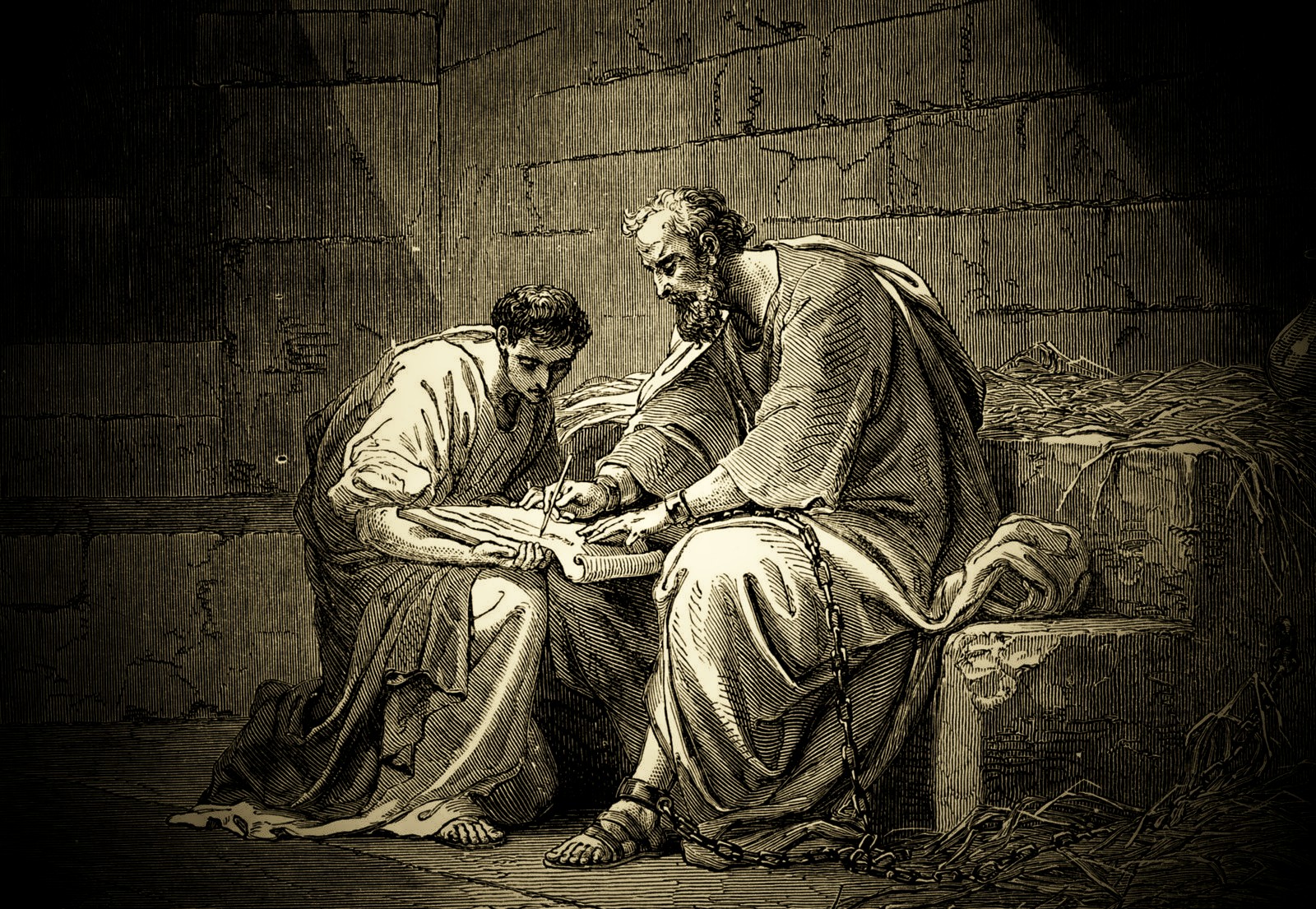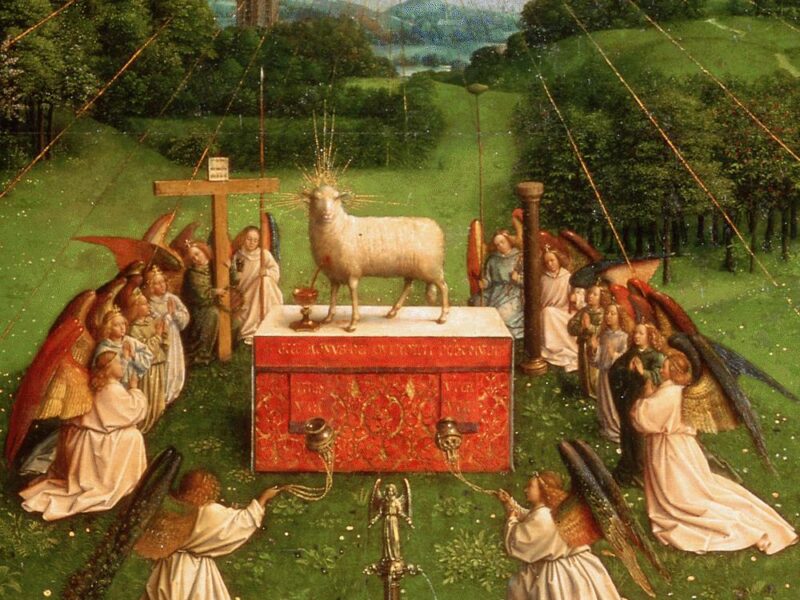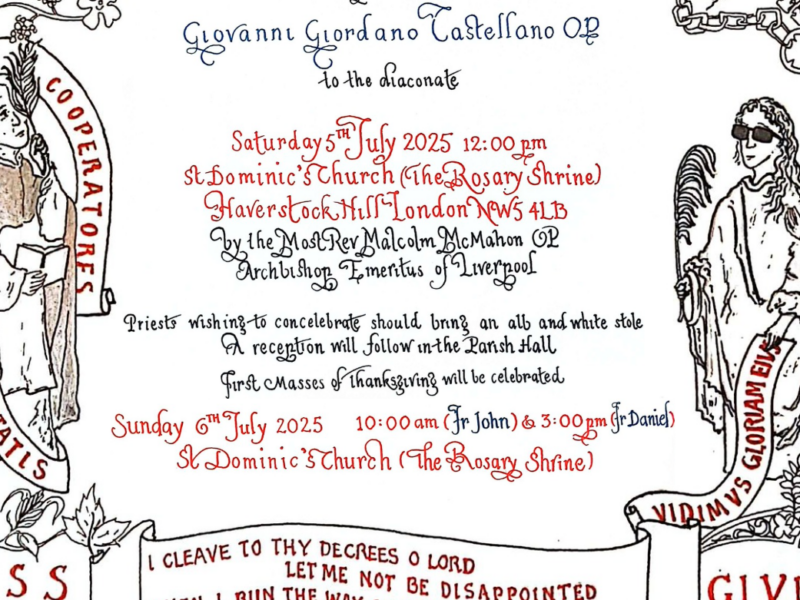
Christian, acknowledge your dignity
St Paul’s letter to Philemon reminds us of our dignity as children of God. Therefore, we should also take care to treat others with the dignity they deserve as God’s children.

Reading: Philemon 7-20
The following homily was preached to the student brothers at compline. You can listen here or read below:
“… that you might have him back for ever, no longer as a slave but more than a slave, as a beloved brother…” (Philemon 15-16)
When we hear the word ‘slavery’, perhaps the first image that comes to mind is that of the slave trade. Perhaps we imagine people being bought and sold as property, forced to labour under cruel and severe working conditions. It is not hard to imagine why such a practice is evil, and we can give thanks to God that slavery of this kind is becoming increasingly rare in our time. After all, human beings, no matter where they come from, are people made in the image and likeness of God, deserving of being treated with dignity.
I think this is the core message of St Paul’s letter to Philemon: human dignity. And I think we shall see why if we examine each of the three characters here in turn.
Let us begin with Onesimus, the runaway slave, whose running away causes a financial loss for his master, Philemon. Are we not like Onesimus? When we sin, do we not run away from our heavenly Lord and Master? By failing to love God, do we not deprive Him of his dues? But see how much He loves us: “For God so loved the world that He gave us His only-begotten Son” (John 3:16). When we ran away, Our Lord Jesus came seeking after us, so that we might be restored to God. And by His passion and death, we are restored to God – but no longer as slaves! Rather, we have been elevated to God’s household, as adopted children; “and if children, then heirs, heirs of God and fellow-heirs with Christ” (Romans 8:17). But if He has bestowed upon each of us such dignity, should we not be careful with how we treat one another?
This brings us to Philemon, the master of Onesimus. We have heard how St Paul reminded Philemon of the debt that Philemon owed him. St Paul points out that it would be hypocritical of Philemon to demand that Onesimus repay the debt he owed Philemon. St Paul’s message seems to echo Our Lord’s parable about the unmerciful servant, who refused to forgive the debt of a fellow servant even after he had his own debt forgiven by the king (Matthew 18:23-35).
The character of Philemon invites us to reflect on our own interactions with each other. Do we treat the people around us with the dignity they deserve as children of God, or do we see them as mere tools to be used and discarded? Are they simply objects that we use to fulfil our desires?
Because of our sins, we, like Philemon, owe a debt to God which we cannot repay. And yet God gave us His grace and salvation as a free gift. And what an amazing gift it is that we, who are so unworthy, should be elevated to friendship with God as His children! It should take our breath away! It should blow our minds! So what does it say about us when we cannot find it in our hearts to forgive one another? What does it say about us if we only love those who love us back, those whom we find easy to get along with? What does it say about us if we ‘enslave’ others by objectifying them, by treating them as tools to be used? If we know that we have received such a great gift of love from God, even while we were undeserving of it, how can we then turn around and deny that gift to each other?
Next, we have the character of St Paul. “Blessed are the peacemakers, for they shall be called sons of God” (Matthew 5:9). Like St Paul who restores Onesimus to Philemon, we are also called to seek out the lost and lead them back to friendship with God. As St Paul loved Onesimus, we too are called to love our fellow runaway slaves and to treat them with dignity, that God’s love might shine through us.
“As for you, little child, you shall be called a prophet of God, the Most High. You shall go ahead of the Lord to prepare his ways before him, to make known to his people their salvation through forgiveness of all their sins, the loving-kindness of the heart of our God who visits us like the dawn from on high.” (Luke 1:76-78)
Finally let us end by reflecting on the words of Pope St Leo the Great, whose memorial we will celebrate tomorrow, in one of his Christmas Day sermons:
“Christian, acknowledge your dignity, and becoming a partner in the Divine nature, refuse to return to the old baseness by degenerate conduct. Remember the Head and the Body of whom you are a member. Recollect that you were rescued from the power of darkness and brought out into God’s light and kingdom. By the mystery of Baptism you were made the temple of the Holy Spirit… your purchase money is the blood of Christ…” (St Leo I, Sermon XXI)



Robert
A lovely commentary on the Letter to Philemon. And a very relevant message these days. Thank you Br Jerome.
Shirley
Thank you br for amazing and eye opening writing